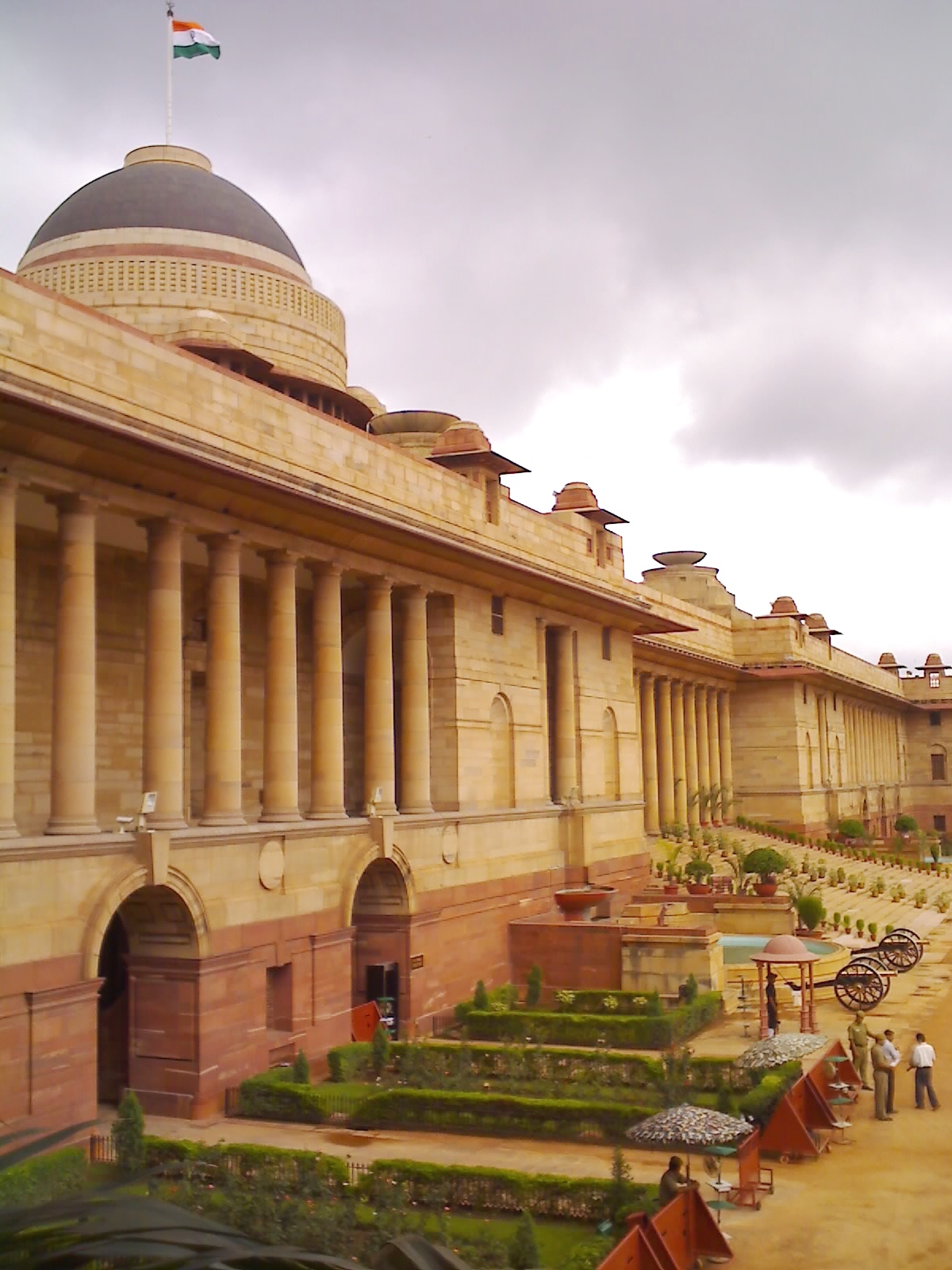


India's Rashtrapati Bhavan has announced the renaming of two historic buildings - Durbar Hall and Ashok Hall, as Ganatantra Mandap and Ashok Mandap. The decision was made to reflect the country's shift from a monarchy to a republic. This change signifies the deep-rooted concept of 'Ganatantra' in Indian society.
Renaming of Durbar Hall and Ashok Hall: A Symbol of India's Republican Values
In a historic move, India's Rashtrapati Bhavan (Presidential Palace) has announced the renaming of two iconic buildings: Durbar Hall and Ashok Hall, as Ganatantra Mandap and Ashok Mandap, respectively. This decision signifies the country's transition from a monarchy to a republic and reflects the deep-rooted concept of "Ganatantra" (Republic) in Indian society.
Historical Background
The two buildings were originally part of the British-era Viceroy's Palace. Durbar Hall, completed in 1911, served as the venue for grand ceremonies and receptions hosted by the British Viceroy. Ashok Hall, constructed in 1934, was named after Emperor Ashoka, renowned for his Buddhist legacy.
The Republic of India
After India gained independence in 1947, both buildings continued to be used for ceremonial purposes. However, the country's transition to a republic in 1950 marked a significant shift in its political and cultural landscape. The term "Ganatantra" became an integral part of India's Constitution and identity.
Symbolic Significance
The renaming of Durbar Hall as Ganatantra Mandap is a symbolic representation of the country's democratic values. "Ganatantra" embodies the idea that sovereignty lies with the people, and the government derives its authority from their consent.
Ashok Hall, on the other hand, continues to honor Emperor Ashoka, but with a renewed focus on his legacy as a proponent of peace, non-violence, and religious harmony. The renaming as Ashok Mandap ensures that this aspect of India's ancient history remains prominent within the hallowed halls of Rashtrapati Bhavan.
FAQs
Why were Durbar Hall and Ashok Hall renamed? To reflect India's transition from a monarchy to a republic and to emphasize the concept of "Ganatantra" in Indian society.
What is the significance of the term "Ganatantra"? It means "Republic" and signifies that sovereignty lies with the people of India.
How will the renaming affect the buildings' use? They will continue to be used for ceremonial purposes, but the new names will serve as a constant reminder of India's republican values.
What is Emperor Ashoka's significance in the renaming of Ashok Mandap? Ashoka was known for his Buddhist legacy and his emphasis on peace, non-violence, and religious harmony, values that continue to resonate in modern India.
What is the historical context behind Durbar Hall? It was built as a venue for grand ceremonies and receptions hosted by the British Viceroy during the colonial era.

The Pasighat police in East Siang district, Arunachal Pradesh have arrested the 33-year-old boys' hostel warden of Sanggo English School for sexually assaulting minor students. This came to light when a student was hospitalized for urogenital complications. The incident has sparked outrage from parents and the public, demanding strict action against the accused warden. In response, the Arunachal Pradesh State Human Rights Commission (APSHRC) has taken suo motu cognisance and ordered for a detailed report on the investigation, victim protection, and school management.

Actress Siddiqa Begum, daughter and legal heir of Shah Bano, has served a legal notice on the makers of the upcoming Bollywood film 'Haq'. The notice states that the film's unauthorized depiction of the personal life of Shah Bano without the consent of her legal heirs is a violation of their rights. 'Haq' is based on the landmark 1985 Supreme Court case that granted maintenance to Shah Bano, a Muslim woman, from her divorced husband.

After four years, the 'Darbar Move' tradition in Jammu and Kashmir has been restored, fulfilling the promise of the government and bringing a boost to the economy. National Conference chief Farooq Abdullah expressed happiness, noting that those who sought to separate Jammu and Srinagar have failed. Chief Minister Omar Abdullah received a warm reception and inspected the secretariat premises after the ceremony, as security in the region was heightened for the occasion.

Delhi Legislative Assembly Speaker Vijender Gupta praised Swami Dayanand Saraswati as not just a saint and reformer, but also a pivotal figure in India's freedom struggle. Speaking at the International Arya Samaj Conference, Gupta highlighted how Swami Dayanand's teachings sparked a revolution that led to the nation's independence. The event was attended by esteemed guests including Gujarat Governor Acharya Devvrat and top officials from the Arya Samaj community, all paying tribute to the enduring impact and legacy of Swami Dayanand Saraswati.

The Metro Railway Kolkata has announced a major schedule expansion for its Yellow Line, which runs between Noapara and Jai Hind Bimanbandar (Airport) in Kolkata. Starting from 3 November, weekday operations will increase to 120 services with extended operating hours, providing greater convenience and accessibility to commuters. Weekend travellers will also see a significant frequency upgrade, making travel on Saturdays and Sundays hassle-free. This move is expected to improve the overall public transportation system in the city and benefit the commuters.

Despite some reassurances that online verticals focused on diversity will continue, NBC News has announced a round of layoffs that will impact about 150 employees, or 2% of their workforce. The cuts are said to be a result of cost-cutting measures in preparation for the split of Comcast's cable networks into Versant. This move signifies a shift in priorities for NBC management, prioritizing corporate profits over hard-working members, according to Susan DeCarava, president of The NewsGuild of New York. This change also means that MSNBC will no longer lean on NBC News for newsgathering, with those ties expected to be severed next week.

The Kasibugga Venkateswara Temple in Srikakulam district was the site of a heart-wrenching stampede, causing multiple fatalities and affecting the community deeply. Chief Minister N. Chandrababu Naidu has expressed his sorrow over the unfortunate incident, as well as directing officials to ensure that those injured receive the best medical treatment possible. As local officials and public representatives are called to oversee relief operations, swift action is required to aid those affected and manage the situation effectively.

Indian Prime Minister Narendra Modi inaugurated the Shanti Shikhar Academy for Peaceful World in Raipur, praising the Brahma Kumaris organization for bridging India's ancient wisdom with the world's search for harmony. He credited the group's selfless service and spiritual discipline for their efforts towards universal peace. He positioned the Brahma Kumaris as protectors of India's soul and highlighted India's proactive role in addressing global crises such as disaster relief and environmental threats.

In an act of solidarity and protest, millions of Muslims in India used their Friday prayers to denounce the recent killings that took place in Pahalgam. The news comes amid growing tensions between the Muslim community and the Indian government. Many are viewing this as a sign of unity and determination from the Muslim population in India.

The state of Karnataka, or Kannada Rajyotsava, marked its 69th anniversary with a grand ceremony organized by the district administration in Mangaluru. District in-charge minister Dinesh Gundu Rao paid tribute to the leaders and writers who fought for a unified Kannada state and presented awards to 80 outstanding individuals and organizations. In his address, the minister highlighted the rich cultural and historical heritage of Karnataka and called for a sense of pride among its citizens.